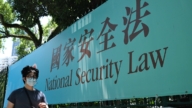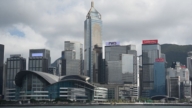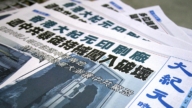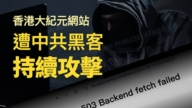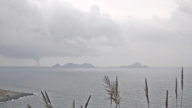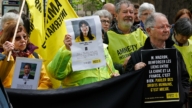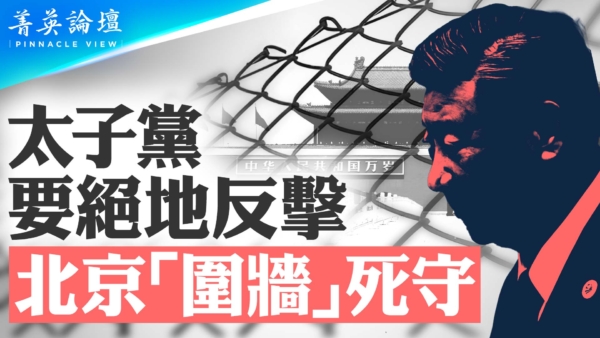【新唐人2015年01月12日訊】日前,華人首富李嘉誠宣佈將他商業帝國中的兩家旗艦企業合併重組,新公司的註冊地也不再是香港,而是選擇了號稱避稅天堂的開曼群島。消息出來後,外界普遍認為,歷來嗅覺靈敏的李嘉誠,這一舉動和最近的中共政治氣氛有關。
1月9號亞洲首富李嘉誠發表企業重大重組計劃,兩大上市公司——長江實業與和記黃埔重新組合,變成兩個新公司:長和、長地。
長和將接管長江實業與和記黃埔的非地產業務,而地產業務將由長地負責。重組預計將在2015年上半年結束前後完成。
值得留意的是,新成立的長地和長和,都是英國海外屬土開曼群島註冊的公司﹔而原來的長江實業及和記黃埔則是香港註冊公司。
《法國廣播電臺》對此評論,這樣一來,使得李嘉誠這次表面上是商業決定的重組計劃,蒙上濃厚的政治色彩。
報導稱,李嘉誠是江澤民時代的「紅頂商人」,兩人交情匪淺,江澤民訪問香港時,不但下榻李擁有的酒店,還與李嘉誠三父子共進早餐,而李嘉誠在當年大舉投資大陸,獲利豐厚。
據香港《鳳凰網》報導,1989年中國大陸發生六四天安門事件,當時外資企業大舉撤資,李嘉誠反而大舉進軍中國大陸市場,六四事件兩年後,李嘉誠奪得香港另外一個商業電臺廣播牌照。
報導還說,北京的大型綜合物業項目「東方廣場」,是李嘉誠在中國大陸的「得意傑作」。1993年規劃的東方廣場,坐落在王府井的絕佳位置,佔地10萬平方米,當時半年內,遷走了長安街上20餘個國家部級單位、40餘個市級單位、100餘個區級單位、1800餘戶居民。
美國南卡羅萊納大學艾肯商學院終身教授謝田:「對中共來說,面臨國際制裁,國際上非常孤立的時候,有這麼個人進來投資,來支持他們,中共肯定也是感恩戴德,投桃報李,讓他賺了很多很多錢。」
英國《路透社》報導,江澤民孫子江志成的博裕資本,首期私募基金集資10億美元,其中包括李嘉誠基金會。
《法國廣播電臺》的報導稱,到了胡溫年代,李嘉誠在大陸的事業已轉趨低調。而到了習近平當政,李嘉誠在大陸的地位,似乎已是明日黃花。
去年7月大陸《華夏時報》報導,多個地方政府縱容李嘉誠囤地謀取暴利。長和繫在全國近十個城市十餘個項目,延長土地開發週期從6年到10多年不等。開發項目4年才完成1%。其中,和記黃埔在北京十三陵附近打造的「皇家別墅」北新嘉園,比合同約定的「2004年11月」開工,已經過去近10年,還是沒有動靜。
在習近平擔任中共第五代領導人不到半年時間,2013年7月底,李嘉誠開始拋售大陸企業和地產,涉及金額約為410億港元。
謝田:「他當年可能是因為江派的關係得到了一些優惠和特權,現在江派開始被清算,從政治上非常敏感的李嘉誠大概感到他最好的時光已經過去了,開始逐漸的把他的資本撤回香港,甚至撤離香港。現在變成海外資本的話,習近平也好,王岐山也好,可能是鞭長莫及。」
去年3月在記者會上,還堅持不會撤資香港的李嘉誠,不足一年,宣佈做出遷冊的決定。
《中國事務》總編伍凡:「這是說明他對香港沒有信心,不信任,對香港這樣的變化他接受不了,港人治港現在改變了,是由中國大陸來的一批富豪在治港,還有北京軍人治港了。」
不過,李嘉誠在記者會上說公司註冊到開曼群島,是為了做生意平衡風險,不是撤資香港。有學者擔憂李嘉誠此舉,可能引發撤資潮。
採訪編輯/劉惠 後製/蕭宇
Li Ka-shing’s New Companies Announce Incorporation in Cayman Islands After Restructure
Recently, the wealthiest Chinese man, Li Ka-shing,
announced that his two largest listed companies
would be restructured into two new ones.
The new companies are incorporated in Cayman Islands,
a tax haven in the Caribbean Sea, instead of Hong Kong.
Li’s move was believed to be related to recent political
turmoil within the Chinese Communist Party (CCP).
Li is well known for his great nose for trends.
On Jan. 9, Asia’s richest man Li Ka-shing announced
the restructure plan for his business empire.
His two largest listed companies, Cheung Kong
(CK Holdings) and Hutchison Whampoa, will be
restructured into two new companies,
CK Hutchison Holdings and CK Property Holdings.
CK Hutchison Holdings will manage all CK Holdings
and Hutchison Whampoa businesses other than real estate.
Property businesses will be moved to CK Property Holdings.
The restructure is scheduled to be complete
in the first half of 2015.
It is worth mentioning that both new companies are
incorporated in Cayman Islands, a British overseas territory.
By contrast, both CK Holdings and Hutchison Whampoa
are Hong Kong companies.
Radio France Internationale (RFI) thus commented that
Li Ka-shing’s “business restructure" appears to be
a decision influenced by political factors.
The RFI’s report said Li Ka-shing had been a red-hat
(government-related) entrepreneur during Jiang Zemin’s
era, and had a personal relationship with Jiang.
When Jiang visited Hong Kong, he stayed at Li’s hotel
and had breakfast with Li and his sons.
During those years, Li Ka-shing’s companies heavily
profited from investment in mainland China.
A Phoenix Television website (ifeng.com) report said
that after the June Fourth Incident in 1989,
foreign enterprises had massively retreated from China.
However, Li Ka-shing did the opposite in breaking into China’s market.
Only two years after the June Fourth Incident, Li won a new
broadcasting license issued by Hong Kong government.
The report also said that the Orient Plaza, one of Beijing’s
largest commercial complexes, is Li’s “proud masterpiece."
The plaza, projected in 1993, is located at an excellent place
in Wangfujing, with a total area of 100,000 square meters.
For the plaza to be constructed, about 20 state-level offices,
40 municipal offices, 100 district offices and 1800 residences
were moved in half a year.
Prof. Xie Tian, Aiken Business School, Univ. of S. Carolina:
“The CCP was isolated and facing international sanctions
at that time.
But Li made huge investments to support the CCP.
So it is not surprising that the CCP rewarded Li’s companies
with large profits."
A Reuters report published in April 2014 said Jiang Zemin’s
grandson Jiang Zhicheng had collected 1 billion dollars
as initial funds for his company Boyu Capital.
Li Ka-shing Foundation was one of the investors.
On the other hand, RFI said Li began to play down
his businesses during Hu Jintao and Wen Jiabao’s era.
After Xi Jinping took power, Li Ka-shing and his companies
had almost become a thing of the past.
Last July, a China Times report pointed out the local CCP
governments’ indulged Li’s companies,
which made huge profits via land hoarding.
The report said CK Holdings had many development
projects in dozens of Chinese cities.
These projects had extended development periods
of six to 10 years.
Some projects only made one-percent progress
in four years.
For example, Hutchison Whampoa had a “royal villa" project
called “Beixin Jiayuan" around the Ming Tombs in Beijing.
The project had been scheduled to start in November 2004,
but nothing happened as 10 years had passed.
In July 2013, only half a year after Xi Jinping became
the CCP’s fifth-generation leader, Li Ka-shing began to sell
his businesses and properties in China
worth about $5.29 billion (41 billion HKD) in total.
Xie Tian: " A possible scenario is that Li Ka-shing used
to have privileges in China as he had personal relationships
with Jiang Zemin.
Now Jiang’s faction is about to collapse.
Li thus sensed with his great nose that his best days
in China had passed.
As a result, his businesses began to retreat to Hong Kong,
or even other countries.
Once his money turned into overseas capital, Xi Jinping
and Wang Qishan would not be able to do anything.
In a press conference in March 2013, Li Ka-shing
said his companies would not leave Hong Kong.
In less than one year, Li broke his promise and announced
the restructure plan.
Wu Fan, editor-in-chief of China Affairs magazine:
“The move suggests that Li has no confidence
in Hong Kong’s future.
He cannot accept the changes that magnates
and armies from mainland China are ruling Hong Kong
instead of Hong Kong people."
On the other hand, Li Ka-shing still claims
his new companies were moved to Cayman Islands
only for risk control, and is not withdrawal of investment
from Hong Kong.
Scholars believe many business people may follow
Li Ka-shing, resulting in mass divestment in Hong Kong.
Interview & Edit/LiuHui Post-Production/XiaoYu


